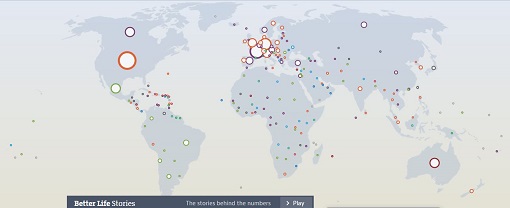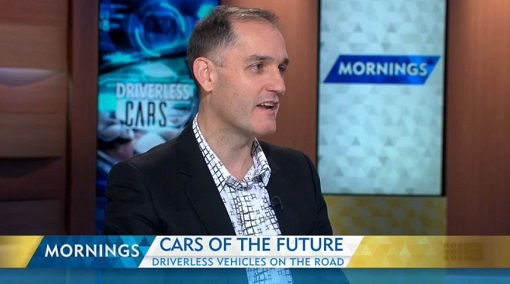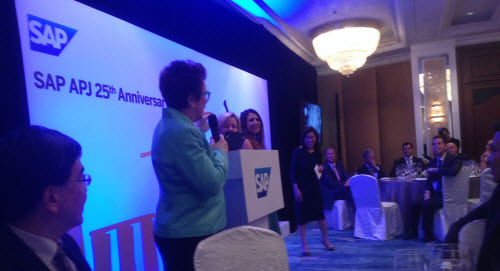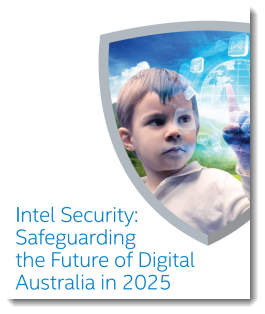This morning I was interviewed on the national breakfast program Sunrise about whether algorithms can assess our personality better than those who are closest to us.
Click on the image below to view the segment.
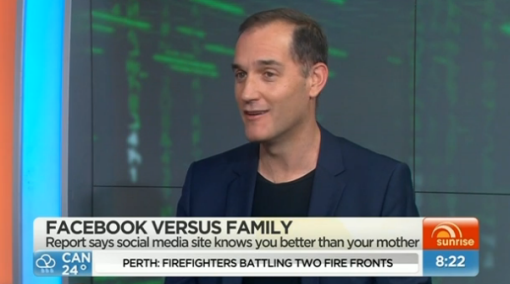
The segment described some just-released research titled Computer-based personality judgments are more accurate than those made by humans in the Proceedings of the National Academy of Sciences, which says:
This study compares the accuracy of personality judgment—a ubiquitous and important social-cognitive activity—between computer models and humans. Using several criteria, we show that computers’ judgments of people’s personalities based on their digital footprints are more accurate and valid than judgments made by their close others or acquaintances (friends, family, spouse, colleagues, etc.). Our findings highlight that people’s personalities can be predicted automatically and without involving human social-cognitive skills.
The personality-assessment algorithm was solely based on Facebook likes made by participants, with results compared to the assessments of people who know them well. As little as 150 likes was sufficient to provide a more accurate personality assessment than a family member such as a parent, while 300 likes enabled a better assessment than a spouse.
What was perhaps more interesting was the claim that “computer personality judgments have higher external validity when predicting life outcomes such as substance use, political attitudes, and physical health; for some outcomes, they even outperform the self-rated personality scores.”
The potential implications are profound. Article co-author Wu Youyou said “In this context, the human-computer interactions depicted in science fiction films such as ‘Her’ seem to be within our reach.”
Being able to interact with people in a way tailored to their personalities and designed to generate particular responses is certainly a fair way beyond being able to assess personalities accurately, but we are rapidly heading in that direction.
These findings are unlikely to give pause to people sharing their lives – and personalities – on social media, but we absolutely need to be aware quite how deep the insights about ourselves we are sharing in our everyday online behaviors.
